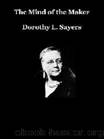Mind of the Maker by Dorothy L. Sayers

Author:Dorothy L. Sayers
Language: eng
Format: mobi
Published: 2008-07-09T04:00:00+00:00
Four great figures the corners on,
Matthew and Mark and Luke and John.
Camilla Doyle (a poem read years ago, the title of which I have quite forgotten. This is itself “associated” with the children’s rhyme about Matthew, Mark, Luke and John).
Where the walls
Of Magnus Martyr hold
Inexplicable splendour of Ionian white and gold.
—T. S. Eliot: The Waste Land.
A bracelet of bright hair about the bone.
—John Donne: The Funeral.
It is, of course, open to anyone to point out that these great streams of power have been much diminished by pouring through my narrow channel. That is quite true, and is partly a measure of my lack of capacity and partly a recognition of the fact that any passage within a work demands a volume of power appropriate to its place in the unity of that work and no more. (Readers who are interested in studying how a great writer may incorporate and enhance the power of former writers, as well as of his own previous achievements, should study M. R. Ridley’s book, Keats’ Craftsmanship.) But what is. important, and not always understood in these days, is that a reminiscent passage of this kind is intended to recall to the reader all the associated passages, and so put him in touch with the sources of power behind and beyond the writer. The demand for “originality”—with the implication that the reminiscence of other writers is a sin against originality and a defect in the work—is a recent one and would have seemed quite ludicrous to poets of the Augustan Age, or of Shakespeare’s time. The traditional view is that each new work should be a fresh focus of power through which former streams of beauty, emotion, and reflection are directed. This view is adopted, and perhaps carried to excess, by writers like T. S. Eliot, some of whose poems are a close web of quotations and adaptations, chosen for their associative value, or like James Joyce, who makes great use of the associative value of sounds and syllables. The criterion is, not whether the associations are called up, but whether the spirits invoked by this kind of verbal incantation are charged with personal power by the magician who speeds them about their new business.
The Power—the Spirit—is thus a social power, working to bring all minds into its own unity, sometimes by similarity and at other times by contrast. There is a diversity of gifts, but the same spirit. Sometimes we feel that a critic or student of a man’s work has “read into it” a good deal more than the first writer “meant”. This is, perhaps, to have a rather confined apprehension of the unity and diversity of the Power. In the narrower sense, it is doubtless true that when Solomon or somebody wrote the Song of Songs he did not “mean” to write an epithalamium on the mystic nuptials of Christ with His Church. By the same process of reasoning, when Drayton wrote:
Download
This site does not store any files on its server. We only index and link to content provided by other sites. Please contact the content providers to delete copyright contents if any and email us, we'll remove relevant links or contents immediately.
Red by Erica Spindler(12575)
Crooked Kingdom: Book 2 (Six of Crows) by Bardugo Leigh(12319)
Twisted Palace by Erin Watt(11155)
Mindhunter: Inside the FBI's Elite Serial Crime Unit by John E. Douglas & Mark Olshaker(9344)
Fangirl by Rainbow Rowell(9254)
Never let me go by Kazuo Ishiguro(8902)
All the Light We Cannot See: A Novel by Anthony Doerr(8497)
A Man Called Ove: A Novel by Fredrik Backman(8438)
The Lover by Duras Marguerite(7903)
Confessions of an Ugly Stepsister by Gregory Maguire(7889)
Little Fires Everywhere by Celeste Ng(7201)
The Vegetarian by Han Kang(6303)
To All the Boys I've Loved Before by Jenny Han(5851)
The Shadow Of The Wind by Carlos Ruiz Zafón(5693)
On the Yard (New York Review Books Classics) by Braly Malcolm(5525)
Keepsake: True North #2 by Sarina Bowen(5414)
Dancing After Hours by Andre Dubus(5280)
Ken Follett - World without end by Ken Follett(4734)
The Perks of Being a Wallflower by Stephen Chbosky(4649)
